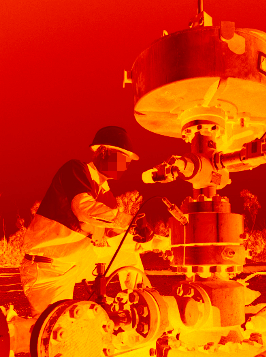CSIRO gas links questioned
 Experts have raised concerns that the CSIRO has been compromised by its relationship with the CSG industry.
Experts have raised concerns that the CSIRO has been compromised by its relationship with the CSG industry.
The CSIRO, Australia’s leading science body, recently released a report that found fracking has little to no impact on the environment.
CSIRO’s report — Air, Water and Soil Impacts of Hydraulic Fracturing in the Surat Basin, Queensland — found “little to no impacts” from fracking “on air quality, soils, groundwater and waterways”.
The research was undertaken by the Gas Industry Social and Economic Research Alliance (GISERA), which is an alliance between the Commonwealth research agency and major CSG companies.
The organisation is being criticised for testing just six gas wells out of the 19,000 across the state.
Environmental scientist Professor Ian Lowe says the sample size “doesn't pass the pub test”.
“Six [wells] is just too small a sample out of 19,000 wells to have any confidence in the results,” Professor Lowe said.
“The second and more basic problem is that the wells weren't chosen randomly: they were chosen by the industry and the industry obviously has a vested interest in looking good.”
Former Australian chief scientist Professor Penny Sackett, who now works for the ANU's Climate Change Institute, questioned the choice of sites.
“There's simply not enough sites that are tested and also I think there could be a concern that the sites were chosen by the gas industry itself,” she said.
GISERA says the research is the most chemically detailed study ever undertaken in a CSG field in Australia.
A spokesperson claims over 100 water samples were taken from creeks and groundwater, and dozens of tests carried out on soil samples.
GISERA says it has “a robust and transparent governance framework to ensure that GISERA's research is demonstrably independent”.
But Professor Sackett is concerned that the CSIRO has been compromised.
“The report was essentially conducted on behalf of the gas industry, funded primarily by the gas industry, with sites chosen by the gas industry,” Professor Sackett said.
“You really want those sorts of reports done by independent bodies that are funded independently, preferably by public money.”
She also pointed out that deep within the research was evidence of significant contamination to soil.
“When you read all the way down into the report and its statements, they were much stronger in saying that hydraulic fracking fluid had a significant adverse effect on subsurface soil microbes, and that much more study was needed,” Professor Sackett said.
The Australia Institute progressive thinktank analysed the results of the research and found a huge margin of error.
With only six wells tested, Australia Institute spokesman Mark Ogge says the report is “not representative of CSG in Queensland”.
“Overall — in fact — it's got a margin of error of around 40 per cent,” Mr Ogge said.
“What you've got is a situation where the gas industry is funding and overseeing research into its own impacts and then that research is being used to influence decision makers at all levels of government.
“You've got fracking companies funding research and overseeing research on the impacts of fracking, so there's a huge conflict of interest at the heart of this research.
“There's 19,000 CSG wells in Queensland and this report only … looked at six wells, which is a tiny sample size.”
The expert all said they have no dispute with the work of the CSIRO scientists involved in the research, but do have serious questions about how it has been interpreted.
CSIRO says the GISERA study was “independently peer reviewed by international and Australian experts and their feedback was incorporated into the final Phase 2 study designs prior to work commencing”.
“The research program is overseen by independent Regional Research Advisory Committees in which community stakeholder representatives and independent experts always have majority voting rights,” a spokesperson said.







 Print
Print